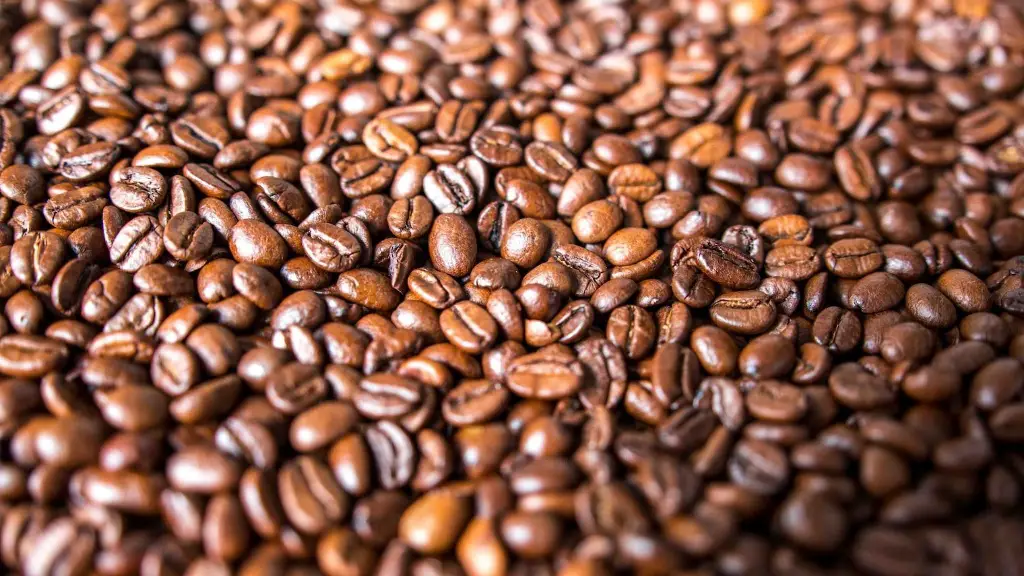Introduction
Drinking coffee is one of the most popular beverages in the world. It is widely used to provide an energy boost or to stay alert. But can drinking too much coffee give you heartburn? This article investigates the connection between heartburn and coffee to provide comprehensive information on the topic.
Background
Heartburn is a painful burning sensation in the chest caused by acid reflux. It is a common problem and can be caused by lifestyle factors such as diet, stress, and certain medications. Coffee is thought to be one of the main contributors to heartburn due to its acidic content and the presence of caffeine. Coffee stimulates the production of stomach acid, which can lead to indigestion and heartburn.
Experts’ Perspectives
Medical experts recommend limiting coffee intake to two cups per day to reduce the risk of heartburn. Studies suggest that drinking four or more cups of coffee per day can increase the risk of developing heartburn. Too much caffeine can also cause physical and emotional symptoms such as headaches, irritability, and anxiety. It is also important to note that decaffeinated coffee, although not as acidic as regular coffee, can still trigger heartburn in some people.
Discussing the Connection
There is a clear connection between drinking too much coffee and experiencing heartburn. Caffeine, the active ingredient in coffee, can stimulate the production of stomach acid, which can cause gastric reflux. High acidity levels can irritate the lining of the esophagus and lead to heartburn. Coffee also contains other compounds such as tannins and chlorogenic acids, which can act as irritants and trigger symptoms of heartburn.
Understanding the Causes
It is important to understand the causes of heartburn before trying to reduce its symptoms. In addition to drinking too much coffee, other factors can contribute to heartburn, such as eating large meals, smoking, drinking alcohol, stress, and certain medications. Understanding the causes of heartburn can help you make healthful lifestyle changes to reduce its symptoms.
Treatment & Prevention
If you are experiencing heartburn after drinking too much coffee, it is important to reduce your consumption of coffee and other caffeinated beverages. Eating smaller meals, avoiding trigger foods, reducing stress, and avoiding alcoholic beverages can also help reduce the severity of heartburn. Drinking plenty of water throughout the day can also help reduce symptoms of heartburn.
What Other Beverages to Drink?
If you are looking for alternative beverages to enjoy without experiencing heartburn, there are plenty of options. Drinking herbal teas, such as chamomile and peppermint, can be beneficial for heartburn relief. In addition, drinking water, coconut water, and low-sugar smoothies can also provide relief from heartburn symptoms.
The Role of Diet & Exercise
Diet and exercise can also play a role in reducing your risk of developing heartburn. Eating a healthy, balanced diet and sticking to recommended portion sizes can help reduce heartburn symptoms. Regular exercise can also help reduce the severity of heartburn, as it can help reduce stress levels and promote healthy digestion.
Managing Coffee Intake
It is important to manage your coffee intake to reduce the risk of heartburn. Choosing low-acid or decaffeinated coffee can be beneficial, as these have less of an effect on stomach acid production. Alternatives such as herbal teas or warm water can also be enjoyed without inducing heartburn.
Managing Stress & Sleep
Stress and lack of sleep can also trigger heartburn symptoms. It is important to manage stress levels and aim for at least 7 to 8 hours of restful sleep each night. Relaxation techniques such as yoga and meditation can also help reduce stress levels and promote better sleep.
The Role of Natural Remedies
Many people turn to natural remedies to help manage heartburn symptoms. Baking soda is a common remedy for heartburn, as it helps neutralize stomach acid. Natural herbs such as ginger, licorice root, and chamomile can also be used to reduce heartburn symptoms. Probiotics are also a great natural remedy, as they help restore balance to the digestive system.
Indigestion & Heartburn
Indigestion and heartburn are closely linked, and it is important to understand the difference between the two. Indigestion is usually caused by eating a large meal or consuming too much alcohol, while heartburn is a symptom of the digestive process caused by stomach acid irritating the lining of the esophagus.
The Role of Medications
Medications can also help reduce the symptoms of heartburn. Antacid medications, such as omeprazole and ranitidine, are commonly used to manage heartburn. These medications are known as proton pump inhibitors and help reduce stomach acid production. Be sure to talk to your doctor before taking any medication for heartburn.
Weight Management Considerations
Being overweight is one of the main risk factors for developing heartburn. It is important to maintain a healthy weight to reduce the risk of developing heartburn. Eating a healthy diet and incorporating exercise into your daily routine can help you reach and maintain a healthy weight.
Making Changes to Lifestyle
Making changes to your lifestyle can help reduce the risk of developing heartburn. Eating smaller meals, avoiding trigger foods, quitting smoking, and reducing alcohol consumption can all help reduce the risk of heartburn. It is also important to manage stress levels and get regular exercise.
Water Intake & Hydration
Maintaining a healthy level of hydration can help reduce the risk of developing heartburn. Drinking plenty of water throughout the day can help keep the body hydrated and reduce the risk of heartburn. Water can also help dilute stomach acid and reduce the risk of irritating the esophageal lining.




